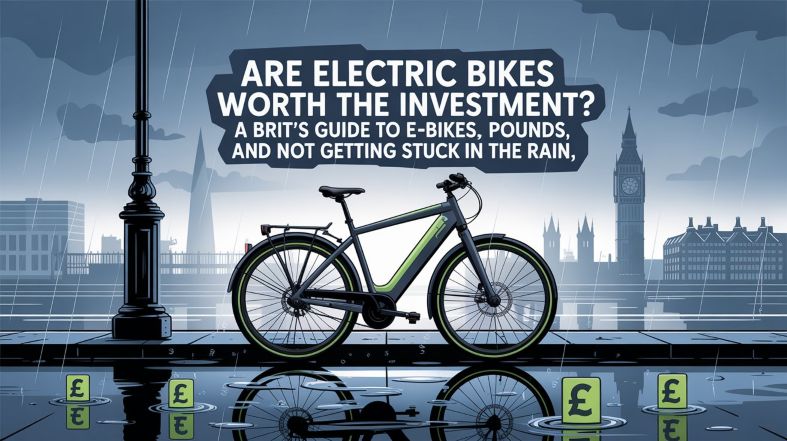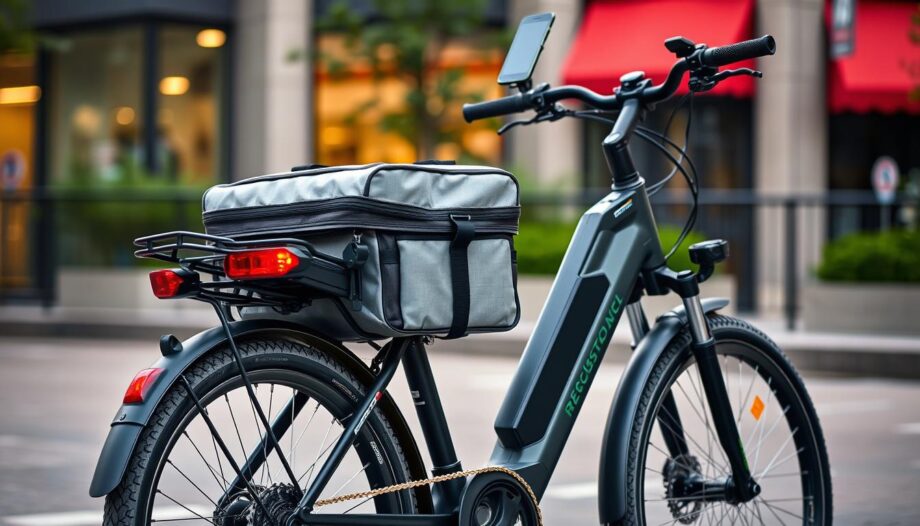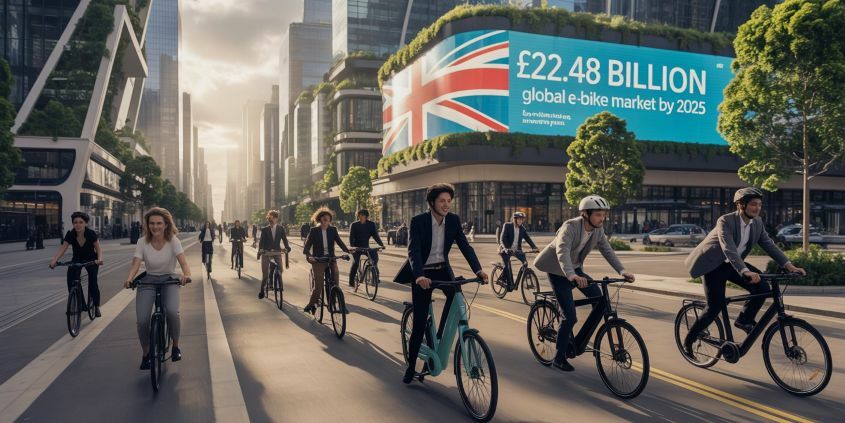Against the vibrant backdrop of technologically driven societies, the E-scooter represents a new wave of green transportation. Countries across the globe are embracing this eco-friendly trend, yet the UK appears caught in a legislative limbo. This blog post meticulously unfurls the tangled web of reasons why UK law trails behind other nations in legalising and regulating E-scooters. From safety concerns to regulatory reluctance, we dive deep into the challenges slowing down this two-wheeled revolution in Blighty, revealing insights that could potentially reshape debates and contribute to policy dialogue. Stay with us on this engaging journey that paints a comprehensive panorama of where we currently stand and how far we have to go in our pursuit of cleaner, smarter British mobility.
There are several factors that contribute to the UK’s slow progress in legalising e-scooters, including a complex legal framework and lack of specific legislation for powered transporters. Additionally, e-scooter trials have faced delays due to unclear regulations and external factors such as Brexit and the Covid-19 pandemic. While a new transport bill aims to legalise e-scooters and promote zero-emission vehicles, potential restrictions for e-scooter users include speed limits, no use on pavements, provisional licenses, scooter lights, and alert devices.

The Arrival of Electric-Scooters in the UK
The arrival of e-scooters in the UK has marked a significant shift in urban mobility. Although the country has been slower than some others to embrace this mode of transportation, the demand for e-scooters has been steadily increasing. E-scooter companies like Lime, Bird, and Voi have expanded their operations worldwide, with a growing interest in the UK market.
In cities such as London, Manchester, and Birmingham, you can now spot electric scooters whizzing around the streets, offering an eco-friendly and cost-effective alternative to traditional modes of transport. These sleek and compact vehicles offer convenience and agility that can make navigating through heavy traffic much easier than by car or public transport.
Imagine living in a busy city where rush hour traffic seems never-ending. You want to avoid crowded buses and trains but don’t want to deal with the hassle of finding parking for your car. Enter e-scooters – a solution that allows you to zip through traffic without contributing to air pollution or facing parking difficulties.
However, the integration of e-scooters into the UK’s transportation landscape hasn’t come without challenges. The regulatory framework surrounding e-scooter use on public roads has been complex and outdated, creating legal obstacles for riders and service providers alike. As a result, the UK has lagged behind other countries when it comes to legalising private e-scooters.
Despite these challenges, the popularity of e-scooters continues to grow, driven by their unique benefits for urban mobility.
EScooter Popularity and Urban Mobility
The rapid rise in e-scooter popularity is not without reason. These electric-powered vehicles offer numerous advantages that make them appealing for urban commuting. Let’s explore some of these benefits:
- Cost-Effectiveness: E-scooters provide an affordable way to travel short distances, especially when compared to the cost of owning and maintaining a car or using rideshare services. For quick trips, e-scooters can save both time and money.
- Environmental Impact: The increasing focus on reducing carbon emissions and combating climate change has pushed individuals and cities to explore sustainable transportation options. E-scooters run on electricity and produce zero direct emissions, making them a greener choice compared to conventional vehicles.
- Last-Mile Connectivity: E-scooters excel in filling the gap between public transportation stops and final destinations. Commuters can easily cover that last mile from bus stops or train stations to their homes or workplaces with swift and efficient scooter rides. This improves overall accessibility and reduces dependency on private cars for shorter trips.
- Flexibility and Convenience: With the rise of ride-sharing platforms, access to e-scooters has become increasingly convenient. Users can rent an e-scooter through mobile apps, unlocking them at designated parking spots scattered across the city. This flexibility allows people to choose their preferred mode of transportation according to their needs.
Consider a scenario where you need to attend multiple meetings in different locations throughout the day – an e-scooter would provide a hassle-free way to navigate efficiently between these destinations.
Picture this: You’re running late for an important meeting and find yourself stuck in traffic. The minutes tick by, stress levels rise, and you start worrying about missing your appointment. Now imagine hopping on an e-scooter, effortlessly weaving through traffic, arriving at your destination swiftly while enjoying the wind in your hair – all without leaving behind harmful emissions.
As we’ve explored the reasons behind the growth of e-scooter popularity and their advantages for urban mobility, it becomes clear why they have gained such traction in cities worldwide.
- As of 2020, only rental e-scooters have been allowed on UK roads as part of specific government trials, compared to countries like Germany and France where private e-scooters were legalised in 2019.
- The UK’s complex legal framework has resulted in delays in e-scooter legislation; indeed, preliminary trials didn’t start until July 2020, a year after many European nations had already accepted the mode of transport.
- Statistical data suggests that e-scooters are five times safer than e-bikes, yet current UK law treats them similarly to motor vehicles requiring licence and registration for road use.
UK’s Legal Challenges with Electric-Scooters
The United Kingdom has found itself facing several legal challenges when it comes to the integration of e-scooters into its transportation system. As of May 2023, e-scooters are not legally permitted for use on public roads, pavements, cycle lanes, or any public spaces in the UK. This restriction arises from concerns over safety and the lack of specific legislation addressing their usage. While other countries have embraced e-scooters as a convenient mode of transportation, the UK has been cautious in formulating regulations that ensure both rider safety and compatibility with existing road infrastructure.
One of the primary reasons for the delay in legalising e-scooters in the UK is the need to address safety concerns and establish appropriate regulations. Unlike bicycles, e-scooters typically don’t have designated areas to ride, which poses risks to pedestrians and other road users. Additionally, factors such as speed limits, helmet requirements, and insurance coverage need careful consideration to ensure responsible e-scooter usage.
Imagine a scenario where e-scooters are allowed on busy city streets without proper regulations in place. The potential for accidents and collisions would increase, endangering both riders and pedestrians alike. It is crucial to establish clear guidelines that prioritise safety while promoting sustainable transportation options like e-scooters.
Safety Regulations and Risk Factors
The establishment of comprehensive safety regulations is vital to mitigate the risk factors associated with e-scooter use. One key consideration is determining an appropriate maximum speed for e-scooters on public roads. Currently, in the UK, the legal maximum speed limit for an e-scooter is 15.5mph (25km/h), aligning it with speed limits applicable to electric bicycles.
Safety equipment requirements also play an essential role in minimising risks. Ensuring that riders wear helmets prevents head injuries in case of accidents or falls. While helmet usage is not currently mandatory for e-scooter riders in the UK, it is highly recommended. As e-scooter trials continue across the country, policymakers will likely examine data on accidents and injuries to inform decisions regarding safety equipment requirements.
Furthermore, liability and insurance considerations must be addressed. At present, having insurance coverage for e-scooters is not a legal requirement in the UK. However, given the potential for accidents and property damage, having insurance can provide financial protection for both riders and third parties. It is essential to strike a balance between personal responsibility and ensuring that those affected by e-scooter accidents are adequately protected.
Consider a scenario where an e-scooter rider collides with a pedestrian, leading to injuries and medical expenses. Without appropriate insurance coverage, both parties may face financial burdens. Implementing regulations that require riders to have insurance coverage can ensure that all parties involved are protected.
Much like traffic regulations governing cars and bicycles help maintain order and safety on roads, formulating comprehensive safety regulations for e-scooters is crucial. Just as seatbelt laws were introduced to reduce injuries in cars, defining safety requirements for e-scooters can help prevent accidents and protect riders and pedestrians alike.
E-Scooter Laws: UK vs. Other Countries
The United Kingdom has found itself lagging behind other countries when it comes to the legalisation and regulation of e-scooters. While many countries in Europe and around the world have embraced this mode of transportation, the UK has been slow to catch up. This has led to a disparity in e-scooter laws between the UK and other nations.
We have an article about electric scooter law here.
One of the main reasons for this lag can be attributed to safety concerns raised by authorities and policymakers. In 2020 alone, the UK recorded 1,349 collisions involving e-scooters, resulting in 12 fatalities and 1,425 injured casualties. These numbers cannot be ignored, and they have undoubtedly influenced the cautious approach taken by UK lawmakers.
Another factor that has contributed to the delay in e-scooter legalisation is the lack of clarity on issues such as insurance requirements and rider safety. Many European countries that have successfully implemented e-scooter laws have put in place regulations regarding mandatory insurance coverage for riders. In Denmark, France, and the UK itself, riders are required to have insurance while operating e-scooters. This ensures that both riders and pedestrians are protected in case of accidents or injuries.
Let’s now delve into influential policies from countries that have already legalised and regulated e-scooters. By examining what these nations have done right, we can gain insights into potential solutions for the UK.
Influential Policies from Countries Ahead in Legalisation
Paris, for instance, became the first European city to ban rented electric scooters due to rising injuries and three unfortunate fatalities. However, it’s not all doom and gloom as several countries have managed to implement effective policies that balance convenience with safety.
| Country | Key Policy |
|---|---|
| Germany | Separate e-scooter lanes and strict speed limits |
| Sweden | Mandatory helmet use for all riders |
| Netherlands | Allowed on bicycle paths, not sidewalks |
| Austria | Obligatory helmets for minors and low-speed zones |
| Australia | Restricted to shared paths and bike lanes |
By examining these influential policies, the UK can gain insights into successful approaches towards e-scooter regulation. For instance, implementing separate e-scooter lanes and enforcing strict speed limits could help enhance safety and prevent accidents. Additionally, introducing mandatory helmet use for riders or requiring e-scooters to be confined to designated paths instead of sidewalks could further mitigate risks.
It’s important to acknowledge that there will always be debates surrounding the legalisation of e-scooters. Some argue that the potential benefits, such as reduced carbon emissions and increased accessibility, outweigh the risks. Those in favour of legalisation point to successful implementation in countries like Germany and Sweden as evidence that it can be done safely. On the other hand, opponents emphasise the need for a cautious approach, citing concerns about safety and enforcement of regulations.
While valid arguments exist on both sides of the debate, it is clear that studying influential policies from countries ahead in legalisation can offer valuable lessons moving forward.
Potential Advantages of E-Scooters in Cities
E-scooters have gained immense popularity in recent years as a potential solution to urban transportation challenges. As we explore the reasons why UK law lags behind with e-scooters, it’s important to recognise the potential advantages these vehicles can bring to cities.
First and foremost, e-scooters have the potential to alleviate traffic congestion, which has become a persistent issue in many urban areas. With their compact size and agility, e-scooters can navigate through congested streets and reach destinations more quickly, reducing the number of cars on the road. This not only helps ease traffic flow but also contributes to a decrease in carbon emissions, leading to cleaner and healthier urban environments.
Imagine you’re commuting to work in a city centre where traffic is notorious during rush hour. Instead of being stuck in bumper-to-bumper traffic, imagine zipping through on an e-scooter, effortlessly bypassing gridlock and reaching your destination faster. This could significantly improve productivity and reduce frustration for commuters.
Additionally, e-scooters provide an affordable transportation option for short-distance travel. For individuals who need to cover relatively small distances within the city, using an e-scooter can be more cost-effective than relying on other modes of transport such as taxis or ride-sharing services. This affordability factor makes e-scooters particularly attractive for students, tourists, and those seeking an alternative to public transportation.
Moreover, e-scooters promote physical activity by encouraging individuals to engage in active transportation. Riding an e-scooter requires some physical effort and can contribute to fitness levels. It provides an opportunity for people to incorporate exercise into their daily routines while simultaneously getting from point A to point B.
However, as with any new mode of transportation, there are potential concerns regarding safety and regulations that need addressing before widespread adoption can occur. Pedestrian safety should be a priority, and regulations must be in place to ensure responsible riding behaviour and protect vulnerable road users.
With an understanding of the potential advantages of e-scooters in cities, let’s now explore the future of e-scooters in the UK.
- E-scooters have the potential to alleviate traffic congestion, reduce carbon emissions, provide affordable transportation options, and promote physical activity. However, safety concerns and regulations must be addressed before widespread adoption can occur.
The Future of E-Scooters in The UK
As of now, e-scooters remain illegal for use on public roads in the UK. However, the government has initiated trials in 31 designated areas across the country where individuals can legally ride rental e-scooters provided by certain rental companies. These trials are essential for gathering data and insights into their impact on transportation systems, safety considerations, and potential benefits.
The anticipated legalisation of personal use of e-scooters was initially expected by the end of 2023 or early 2024. However, due to various factors such as the impact of Brexit and the COVID-19 pandemic on legislative priorities, the timeline for legalisation has been postponed.
Imagine you’re eagerly awaiting the day when you can conveniently ride your own e-scooter to work or run errands. While you understand the delays caused by external circumstances, it can be frustrating to see e-scooters gaining popularity in other countries while their legal status in the UK remains uncertain.
Nevertheless, the future of e-scooters in the UK holds promise. The government recognises their potential benefits and aims to draught legislation that would pave the way for their widespread adoption. The role of rental companies that are participating in trials is significant since they are playing a key role in shaping regulations and demonstrating responsible usage practises.
It’s important to strike a balance between supporting innovation and prioritising safety when considering the future of e-scooters. Some argue that with appropriate regulations and infrastructure improvements, e-scooters can contribute positively to urban mobility. Others express concerns about potential risks to pedestrians, lack of enforcement, and the need for clear rules of the road.
As we examine the potential advantages of e-scooters and consider their future prospects in the UK, it’s crucial to keep in mind the importance of ensuring rider and pedestrian safety, addressing regulatory challenges, and developing laws that promote responsible usage.
Impact of Brexit and Covid-19 on Legalisation Process
The process of legalising e-scooters in the UK has been hindered by a series of challenges, including the impact of both Brexit and the Covid-19 pandemic. These factors have contributed to delays and complications in implementing specific legislation for private e-scooters on public roads and cycle lanes.
Brexit, the withdrawal of the UK from the European Union, has resulted in significant changes to the country’s legal framework. The complex nature of Brexit negotiations and the subsequent transition period have consumed considerable time and resources that could have been dedicated to addressing issues related to e-scooter legalisation. As a result, progress regarding specific legislation for e-scooters has been side-lined amidst broader concerns.
Furthermore, the Covid-19 pandemic has had far-reaching effects on various sectors, including transportation. The priority shifted towards managing public health concerns and ensuring social distancing measures were in place. This focus naturally diverted attention away from matters such as e-scooter legislation. Lockdowns, travel restrictions, and economic uncertainties caused by the pandemic further delayed the progress of legalising private e-scooters.
It is important to acknowledge that while these factors have contributed to the lag in legalising e-scooters, they are not the sole reasons behind it. The absence of specific legislation for powered transporters like e-scooters prior to Brexit also played a significant role in hindering progress.
Potential Regulations for UK E-Scooter Users
As discussions surrounding the legalisation of e-scooters continue in the UK, potential regulations are being considered to ensure their safe integration into public spaces. While these regulations are still subject to change, they provide insight into how authorities aim to balance convenience with public safety.
One proposed regulation is implementing a maximum speed limit for e-scooters at 15.5 miles per hour (25 kilometres per hour). This limitation aims to enhance safety and reduce the risk of accidents, particularly in crowded areas. By imposing a speed restriction, it ensures that e-scooters are operated at manageable speeds that are compatible with other road users.
Additionally, there is a general consensus among authorities that e-scooters should not be used on pavements. This regulation is rooted in concerns about pedestrians’ safety and aims to prevent collisions between e-scooter riders and pedestrians. By confining e-scooter use to roads and cycle lanes, clear guidelines can mitigate potential hazards for all users.
Other potential regulations under consideration include provisional licences for all e-scooter users, requiring lights on all scooters for increased visibility during nighttime, and the inclusion of an alert device to signal the presence of an e-scooter to pedestrians and other road users.
It’s worth noting that while these regulations aim to address safety concerns, they also highlight the need for responsible usage of e-scooters. It is crucial for riders to abide by traffic rules, wear appropriate protective gear such as helmets, and be considerate of other vehicles and pedestrians sharing the road.
Understanding the potential regulations for UK e-scooter users sheds light on the efforts being made to strike a balance between embracing this mode of transportation and ensuring public safety. However, it remains important to acknowledge ongoing discussions and potential adjustments to these regulations as new information emerges.
If you are looking to buy an escooter check out our range here and ebike range here.
Other Frequently Asked Questions FAQS
How are other forms of transportation, such as bicycles, regulated under UK law?
Bicycles are regulated under UK law as vehicles, subject to traffic regulations such as road signs and signals. However, they are exempt from certain requirements applicable to motor vehicles, including vehicle tax and registration, making them convenient and affordable modes of transportation. According to the Department for Transport, in 2020, an estimated 10% of all trips in the UK were made by bicycle, highlighting their popularity and the need for continued support and investment in cycling infrastructure.
How do e-scooter laws differ in other countries?
E-scooter laws vary significantly across countries. For instance, in Germany and France, e-scooters are allowed on designated bike lanes, reaching speeds up to 20 km/h. In the United States, regulations differ by state, with some allowing e-scooters on roads while others restrict them to sidewalks. The number of e-scooter trips per day in Paris has reached up to 100,000, highlighting their popularity and potential benefits for urban mobility. Meanwhile, the UK’s slow progress in implementing e-scooter regulations has hindered their widespread adoption as a sustainable form of transportation.
Are there any safety concerns associated with allowing e-scooters on UK roads?
Yes, there are safety concerns associated with allowing e-scooters on UK roads. Studies in other countries have shown an increase in accidents and injuries involving e-scooters, including collisions with pedestrians, cyclists, and other vehicles. In a recent pilot programme in the UK, there were reports of accidents and near misses. Additionally, the lack of regulations and proper infrastructure for e-scooters poses further risks to public safety.
What are the potential benefits and drawbacks of legalising electric scooters in the UK?
The potential benefits of legalising e-scooters in the UK include reducing congestion and carbon emissions, promoting a greener mode of transportation, and providing a convenient option for short trips. E-scooters can also contribute to the local economy by creating jobs in the sharing economy sector. However, there are drawbacks such as safety concerns and the need for robust regulations to ensure rider and pedestrian safety. According to a study conducted in Paris, e-scooters have contributed to an increase in accidents and injuries. Striking a balance between the benefits and drawbacks is crucial before making any decision on their legalisation.
What steps can be taken to address the current legal limitations on electric scooters in the UK?
To address the current legal limitations on e-scooters in the UK, several steps can be taken. Firstly, conducting pilot programmes in cities to assess their impact and gather data on safety and usage patterns could help inform future regulations. Secondly, creating dedicated infrastructure such as segregated lanes or parking areas for e-scooters can enhance their integration into urban mobility. Finally, implementing clear regulations on speed limits, age restrictions, and insurance requirements can ensure safer and responsible use of e-scooters. According to a survey conducted by Transport Focus, 70% of people believe that e-scooters should be legalised in the UK, emphasising the need for regulatory changes.




